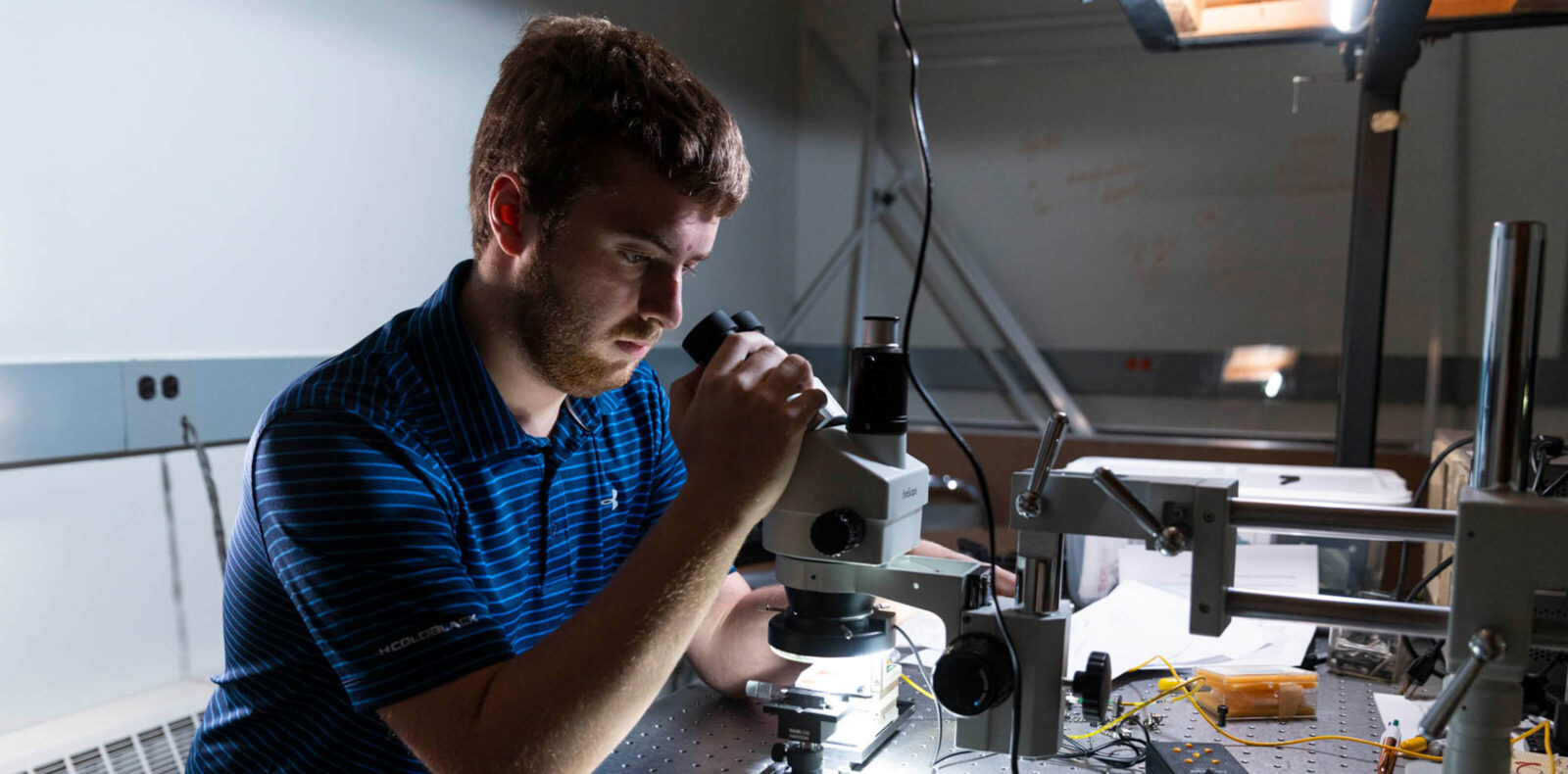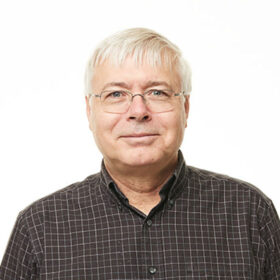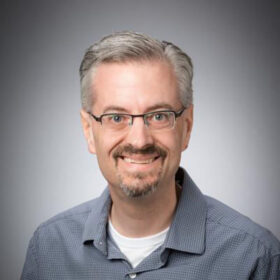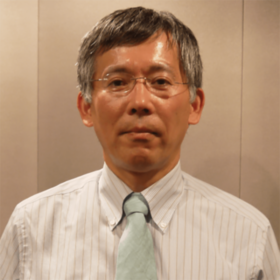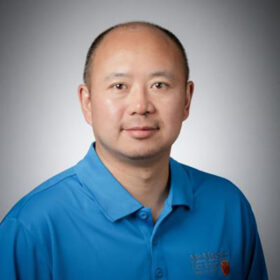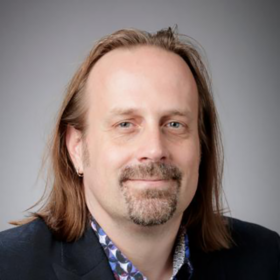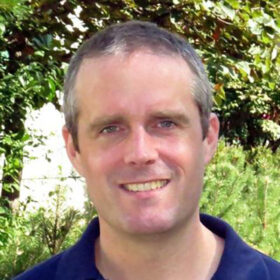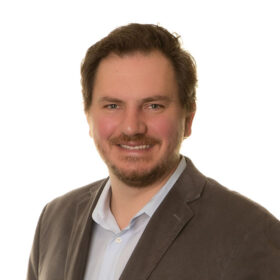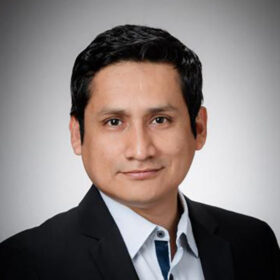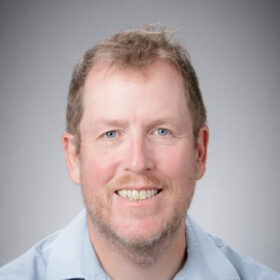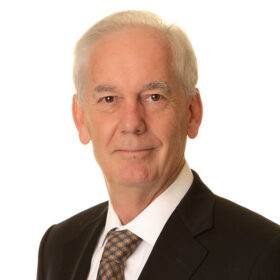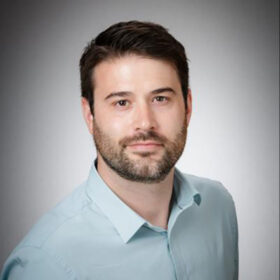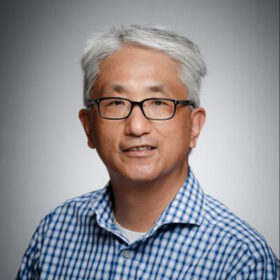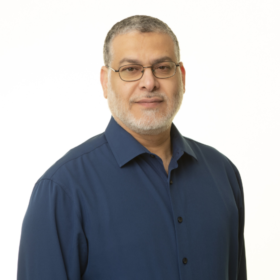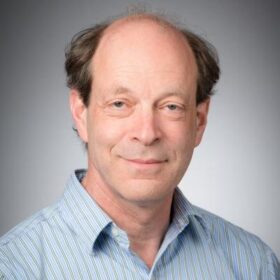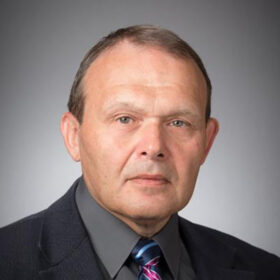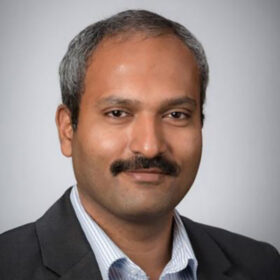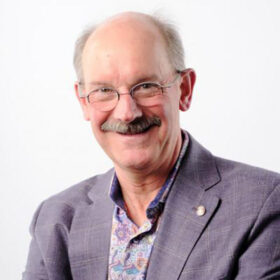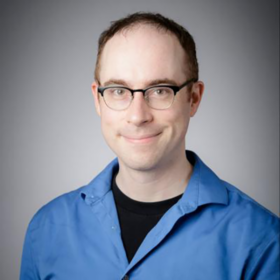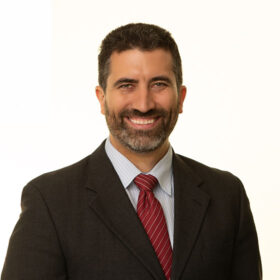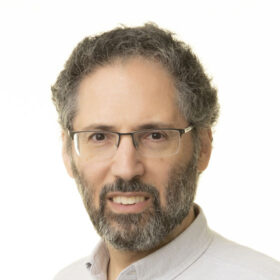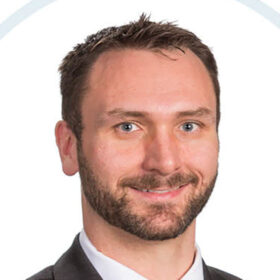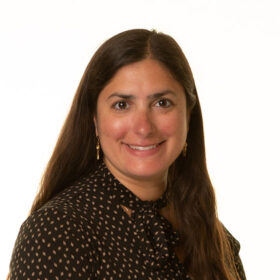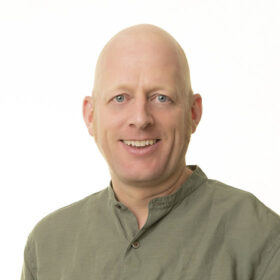-
3 unit(s)
We explore selected critical challenges for humanity, including energy needs and climate change, deployment of artificial intelligence and genetic engineering, and confronting the possibilities of nuclear and biological warfare. We present relevant key concepts in science, engineering, social science, and humanities and apply them to help to understand the scale of these challenges and their potential impacts on future humanity, including social, environmental, and economic implications.
Three lectures; first term
Prerequisite(s): Registration in Level II or above of any program -
Please click “Outline” for Technical Elective Information. Contact the department if anything is unclear.
-
3 unit(s)
A survey course on energy systems with emphasis on the analytic tools needed to evaluate them in terms of performance, resources and environmental sustainability, costs, and other relevant factors over their life cycles.
Three lectures; first term
Prerequisite(s): Registration in Level II or above of an Engineering program
Antirequisite(s): MECHENG 4O04 and CHEMENG 4A03 -
Each student is required to prepare/present a formal seminar, based upon extensive research work and literature surveys, in areas related to their current research. A pass/fail grade will be assessed based on overall performance in the course.
-
Current developments and specialized aspects of engineering physics. This course may be taken for repetitive credit.
-
This course introduces group III-V semiconductor materials, heterostructures and devices including HBTs, HEMTs, laser diodes, photodiodes, and multi-junction solar cells.
-
Antirequisite(s): This course provides an opportunity to experience the decontamination in the residential area which was contaminated by the Fukushima Daiichi Nuclear Power Plant accident. A visit to other nuclear energy industry sites in Japan will give students a chance to consider the responsibility of engineers and scientists in the nuclear field
-
Introduces scientific and engineering aspects of nuclear fuel cycle and radioactive waste management applied to nuclear reactors and the fuel cycle. Includes radiochemistry, separation processes in reprocessing, and waste treatment processes. Addresses management of radioactive wastes, including waste forms, classification, fundamental principles, governing equations for radionuclide transport in the environment, and performance assessment of geological waste disposal systems.
-
An introductory course on nanoelectronics, quantum transport and mesoscopic physics including diffusive and ballistic transport in the classical and quantum regimes, quantum Hall effect, Coulomb blockade, quantum structures, superconductors, topological insulators, and quantum computing.
-
3 unit(s)
Qiyin Fang, Michael S. Patterson, Joseph E. Hayward, and Thomas Farrell
Prerequisite(s): BIOMED 6I03 / Introduction to Biophotonics
To provide an in-depth understanding of the physics behind a selected number of biophotonics applications in life sciences (e.g. fluorescence lifetime imaging, high content screening, etc.) and clinical applications (diffuse optical tomography, time-resolved fluorescence spectroscopy, optical coherent tomography, photoacoustic microscopy, etc.) as well as key tools used these research areas including ImageJ, image processing, and pattern recognition and classification.
Cross-listed: BIOMED 707/ENG PHYS 709 -
Reactor kinetics: point kinetics model; modal model for space-time kinetics; reactivity feedback mechanisms; reactor transfer functions; the in hour equation; reactor stability; Xenon stability; bulk and spatial power control; load following; control systems for CANDU and LWR reactors.
-
Degraded fuel heat transfer; fuel failure mechanisms; fission product release and transport from nuclear fuel; leak-before-break and piping fracture mechanics; pipe ruptures; challenges to containment system integrity; severe accident progression and mitigation; off-site release of fission products; applications to CANDU and LWR reactors.
-
Safety design and analysis of nuclear reactors based on deterministic and probabilistic assessments. Topics include: concepts of risk; probability tools and techniques; safety criteria; design basis accidents; risk assessment; safety analysis; safety system design; and general policy and principles.
-
Advanced topics of current interest in the area of fission and fusion nuclear reactor primary heat transport system, system safety and the transitional operations.
-
-
This course covers the fundamentals of nuclear reactor heat transport system design for key reactor types, with emphasis on the CANDU and Light Water Reactor (PWR and BWR) designs. Theoretical topics and their application include reactor thermodynamics, single-phase and two-phase flow, heat and mass transfer, critical heat, flux, pressure drop prediction, flow stability, design of reactor core, reactor vessel, steam generators and primary heat transport pumps. The course also covers experimental techniques, facilities and results. Course assignments are analytical problems related to these topics.
-
The course covers two-fluid phase modeling of thermal-hydraulic phenomena in the reactor heat transport system including modeling and simulation of postulated accidents, simulation methodology and tools, and development and qualification of selected thermal-hydraulics computer codes, including two-fluid modeling, nodalization schemes and numerical methods, computer code development, CATHENA computer code theory and numerical algorithm. This is a simulation-based course; it includes CATHENA training. Assignments include analytical problems, CATHENA code simulation and analysis, and preparing a CATHENA model and report.
-
An introduction to optical gain media, spectroscopy of light-emitting materials, laser cavities, and steady-state theories of optical amplifiers and lasers. Applications of amplifiers and lasers in fiber-optic systems and photonic integrated circuits are covered.
-
An examination of the theory of operation, manufacture, and application of semiconductor diode lasers. Emphasis will be on InGaAsP diode lasers and the application of these devices in optical communication systems.
-
3 unit(s) An introduction to the theory, physics and operating principles of Scanning electron microscopy (SEM), Focused Ion Beam (FIB) microscopy and attendant diffraction and spectroscopy techniques. The course will have laboratory component allowing students to students to establish core competence in hands-on use of these microscopes.
Cross-listed: MATLS 724 / ENG PHYS 724 / CHEM ENG 724 / MECH ENG 726
TERM 1 -
3 unit(s) Antirequisite(s): Permission of the instructor required. Introduction to transmission electron microscopy: electron sources, optics, TEM, Scanning-TEM, electron-solid interactions, diffraction, imaging, and spectroscopy. Course will include a practical component with demonstration labs.
-
-
Optoelectronic devices and the physics that governs their operation: the electro-optic, acousto-optic, and photo-elastic effects; optics in semiconductors: free carrier effects, heterojunctions, quantum wells, electro-absorption; guided wave optics; optical modulators; photonic switching and optical interconnects; Fourier optics.
-
This course is to provide an in-depth understanding of the physics behind nuclear reactors and the techniques to analyse the neutronic behaviour of a reactor. The emphasis will be on CANDU reactors.
-
-
Thin film growth and deposition including thermal evaporation, e-beam evaporation, sputtering, chemical vapour deposition and molecular beam epitaxy; thermodynamics and kinetics of film growth.
-
Characterization techniques of organic and inorganic thin films, including x-ray and electron diffraction, electron microscopy, chemical analysis, ion beam analysis, and optical and electrical characterization methods.
Cross-listed: ENGPHYS 730 / MECHENG 730
TERM 2 -
The student is required to spend four months carrying out an approved project under the supervision of a member of the faculty of Engineering Physics. Assessment of the project is performed by the faculty member after preparation of a written report by the student. The student must attain a grade of B. The project requires full-time attention and as such the student is not expected to take any other courses during the project. It is expected that the project will take place during the summer term. This course is available only to students in the M.Eng. degree program in the department of Engineering Physics.
-
This course gives an introduction to the basic principles of nonlinear optics, which is useful in understanding the nonlinear optical effects involved in many modern photonic components and devices. It mainly includes a project and an oral examination.
-
-
Cross-listed: ENG PHYS 740 / ECE 740
Prerequisite(s): Enrollment in graduate program in Engineering Physics
This course provides a fundamental in-depth knowledge of the theory of operation, modeling, parameter extraction, scaling issues, and higher order effects of active and passive semiconductor devices that are used in mainstream semiconductor technology. There will be a comprehensive review of the latest models for the devices that are valid out to very high frequencies and the use of physical device modeling/CAD tools. A review of the latest device technologies will be presented. The course will be a prerequisite to the other applied courses in microelectronics. -
-
The study of technologically important metals, ceramics, polymers and molecular solids with magnetic, ferroelectric, piezoelectric, pyroelectric, optical, and electronic properties as well as energy storage and conversion functionality.
-
-
Introduction, Micorfabrication and micromachining. Surface and bulk micromachining, nonconventional machining. Microfluidics, Microchannels, Microsvalves, Micromixers, Micropumps, Droplet actuation, Integrated Systems.
Cross-listed: MECHENG 752 / BIOMED 752 / ENGPHYS 752
Anti-requisite(s): Introduction, Microfabrication and micromachining, Surface and bulk micromachining, non-conventional machining, Microfluidics, Microchannels, Microvalves, Micromixers, Micropumps, Droplet actuation, Integrated Systems.
TERM 2 -
Advanced Photovoltaics provides students with a comprehensive overview of the fundamental processes relevant to photovoltaic operation. Specific devices are studied by both numerical simulation and analytic calculation. A connection is made between the material parameters necessary for simulating a device and their independent measurement by a range of characterization techniques. Silicon, III-V, II-VI, organic and nano-based approaches to PV device design are all explored. Students are also introduced to the challenges of integrating different approaches into a solar based electrical generation system.
-
This course covers power reactor fuel design, performance, and safety aspects, and complements existing courses on reactor core design, thermohydraulics and reactor safety design. It includes fissile and fertile fuels; burn-up effects; fuel production (as well as uranium enrichment and reprocessing of spent fuel); quality assurance and CANDU fuel technical specifications; thermal conductivity; fuel chemistry; fuel restructuring and grain growth; fission product behaviour; fuel defect detection and location; fuel performance in operation; and fuel / fuel channel behaviour in design basis and severe accidents.
-
This is a course on in-core fuel management in nuclear reactors. It covers all aspects of the use of nuclear fuel in CANDU reactors, with comparison to fuel management in Light-Water Reactors. A major objective of the course is to allow students to carry out various types of fullcore calculations in realistic CANDU-reactor models.
-
4 unit(s)
Development of electromagnetic theory – fields, Gauss’ law, electric potential, Laplace equation, dielectrics, Ampere’s law, magnetism, Faraday’s law, inductance, development of Maxwell’s equations via vector calculus.
Three lectures, one tutorial, one lab (three hours) every other week, second term
Prerequisite(s): Registration in any Engineering Physics or Mechatronics Engineering Program; PHYSICS 1E03; and credit or registration in ENGPHYS 2E04 and MATH 2ZZ3 -
4 Unit(s)
Dynamics topics including force, energy, and momentum, linear and angular motion, resonance and coupled oscillators, multiparticle systems, central field problems, non-inertial reference frames, planar mechanisms, generalized coordinates, and Lagrange’s equations. Course topics are explored both analytically and computationally.
Three lectures, one lab (three hours); first term
Prerequisite(s): PHYSICS 1D03 and credit or registration in MATH 2Z03. Registration in ENGPHYS 2P04 is recommended.
Antirequisite(s): MECHENG 2Q04, MECHENG 2Q04, PHYSICS 2E03 -
4 unit(s)
Mathematical modelling and computational multiphysics for engineering design synthesizing E&M, thermodynamics, statics, dynamics, and quantum mechanics.
Three lectures, one lab (three hours); second term
Prerequisite(s): ENGPHYS 2CD4, ENGPHYS 2P04, MATH 2Z03, and credit or registration in ENGPHYS 2A04 and MATH 2ZZ3 -
4 unit(s)
Design and analysis of analog and digital electrical circuits – component analysis, circuit analysis and theorems, binary numbers, Boolean analysis and digital circuit design.
Three lectures, one lab (three hours); first term
Prerequisite(s): PHYSICS 1E03, credit or registration in MATH 2Z03, and registration in an Engineering program -
3 unit(s)
Thermal Systems Design covers the physics, thermodynamics and design of energy conversion systems utilized in many engineering systems. The topics include the first and second law of thermodynamics, irreversibility, the Rankine and Brayton cycles, and common refrigeration cycles.
Three lectures, one tutorial; first term
Prerequisite(s): Registration in Level II or above of an Engineering program
Antirequisite(s): MECHENG 2W04 -
4 unit(s)
Classical mechanics topics including static equilibrium, machines and trusses, determinacy, force and bending moment diagrams, elasticity, shear, principal stresses, tensors, Voigt notation, flexure, and torsion. Course topics are explored analytically and computationally using finite element method and computer algebra system software.
Three lectures, one lab (three hours); first term
Prerequisite(s): PHYSICS 1D03; and credit or registration in MATH 2Z03. Registration in ENGPHYS 2CD4 is recommended.
Antirequisite(s): CIVENG 2P04, ENGINEER 2P04, MECHENG 2P04 -
3 unit(s)
Basic foundations of quantum mechanics; wave-particle duality, uncertainty principle, Hydrogen atom, Schrodinger Equation, barriers and tunnelling, probability, spin, quantum statistics, selected applications.
Three lectures, one tutorial; second term
Prerequisite(s): Registration in Level II or above of an Engineering program
Antirequisite(s): PHYSICS 2C03 -
3 unit(s)
P-N junctions, diodes, bipolar junction transistors, field effect transistors, DC and AC modeling, differential amplifiers and operational amplifiers, feedback and oscillators, digital circuits and multivibrators, signal processing.
Two lectures, one lab (three hours); first term
Prerequisite(s): One of ENGPHYS 2A04, ENGPHYS 2E04, PHYSICS 2BB3
Antirequisite(s): PHYSICS 3B06, 3BA3, ENGPHYS 3BA4, ENGINEER 3N03, ELECENG 3N03, ELECENG 3EJ4 -
3 unit(s)
Design and synthesis project in electronics, focused on integrating analog electronics with a microcontroller to create a PID controlled device. Programming and interfacing the microcontroller are taught in weeks 1-6; the device is designed and built in weeks 7-12. Prior knowledge of basic electronics, including op-amps and transistors is required.
Two lectures, one lab (three hours); second term
Prerequisite(s): One of ENGPHYS 3BA3, 3BA4 or PHYSICS 3BA3
Antirequisite(s): PHYSICS 3B06, 3BB3, ENGPHYS 3BB4 -
Introduction to fission and fusion energy systems. Energetics of nuclear reactions, interactions of radiation with matter, radioactivity, design and operating principles of fission and fusion reactors.
Three lectures, one tutorial, one lab (three hours) four times per term; first term
Prerequisite(s): Registration in Level II or above of an Engineering program
Antirequisite(s): ENGPHYS 3D03 -
4 unit(s)
Geometrical optics, electromagnetic waves, interference of light, Fraunhofer and Fresnel diffraction, polarized light, Fresnel equations, optical properties of materials, introduction to optical systems and precision optics experiments, selected topics in modern optics.
Three lectures, one tutorial, one lab (three hours) four times per term; first term
Prerequisite(s): Registration in any Engineering Program, and one of ISCI 2A18 A/B, MATH 2X03, MATH 2ZZ3; and one of MATH 2C03, MATH 2Z03; and one of PHYSICS 2B03 or ENGPHYS 2A04 or ELECENG 2FH4
Antirequisite(s): ENGPHYS 3E03, PHYSICS 3N03
Cross-list(s): PHYSICS 3N04 -
3 unit(s)
A survey course on energy systems with emphasis on the analytic tools needed to evaluate them in terms of performance, resources and environmental sustainability, costs, and other relevant factors over their life cycles.
Three lectures; first term
Prerequisite(s): Registration in Level II or above of an Engineering program
Antirequisite(s): MECHENG 4O04 and CHEMENG 4A03 -
4 unit(s)
A special program of studies to be arranged by mutual consent of a professor and the student, to carry out experiments and/or theoretical investigations. A written report and oral defence are required.
Two terms (Fall/Winter or Spring/Summer)
Prerequisite(s): A GPA of at least 8.0. Registration in the second last year of an Engineering Physics program (for Fall/Winter enrolment) or the third last year for Spring/Summer enrolment. Subject to Department approval, students are permitted to be supervised by faculty members in other Engineering departments. Subject to Department approval, students from other Departments are permitted to take this course if their supervisor is a faculty member of the Department of Engineering Physics.
Antirequisite(s): IBEHS 3I06 A/B, IBEHS 4H03
ENGPHYS 3H04 may be repeated to a total of eight units. -
4 unit(s)
Introductory statistics for engineering, error analysis of experimental data, data visualization and curve fitting, hypothesis testing and making decisions, ANOVA, sensors for engineering measurements, noise and interference, instrument response and uncertainty, reliability, and selected topics in state-of-the-art technologies.
Three lectures, one lab (three hours) every other week, one tutorial; second term
Prerequisite(s): Registration in Level III or above of any Engineering Physics program and ENGPHYS 2A04,
ENGPHYS 2E04, ENGPHYS 2NE3, ENGPHYS 2QM3, and ENGPHYS 3W03. -
4 unit(s)
Applied numerical methods for engineering including solution of systems of algebraic equations; numerical integration and differentiation; finite difference and finite element methods; ODE solutions; Optimization; Partial differential equations; Monte Carlo simulation.
Three lectures, one lab (three hours); first term
Prerequisite(s): Registration in Level II or above of an Engineering program
Antirequisite(s): ENGPHYS 2CE4, CHEMENG 2E04, CIVENG 2E03, COMPENG 3SK3, MECHENG 3F04,
COMPSCI 4X03, MECHTRON 3X03, SFWRENG 4X03 -
4 unit(s)
Fluid properties and statics are introduced. Basic equations of continuity, energy and momentum for internal and external flows are discussed. Similitude, dimensional analysis, measuring devices, fluid machinery and hydraulic networks. Conduction and convection heat transfer.
Three lectures, one lab (three hours each) four times per term; one tutorial, second term
Prerequisite(s): MATH 2Z03 and credit or registration in MATH 2ZZ3
Antirequisite(s): CIVENG 2O04, MECHENG 3O04, CHEMENG 2O04 -
4 unit(s)
This course covers the theory, design and operation of photonic devices such as waveguides, couplers, modulators, detectors and lasers, and their applications in integrated and fiber optical systems for communications, information processing and sensing.
Three lectures, one lab (three hours), second term
Prerequisite(s): One of ENGPHYS 3E03 or ENGPHYS 3E04 or PHYSICS 3N03 or PHYSICS 3N04
Antirequisite(s): ENGPHYS 3PD3 -
4 unit(s)
Electronic properties of semiconductors: non-equilibrium carrier conditions; steady state and non-steady state; p-n junctions; Schottky diodes; bipolar junction transistors. Detailed coverage of a range of diodes including photodiodes, solar cells, light emitting diodes, zener diodes, and avalanche diodes.
Three lectures, one tutorial, one lab (three hours) every other week; second term
Prerequisite(s): Credit in at least one of the following: ELECENG 2EI4, ENGPHYS 3BA3, ENGPHYS 3BA4, ENGPHYS 3SM3, MATLS 2Q03 or Registration in ENGPHYS 3SM3
Antirequisite(s): MATLS 3Q03 -
3 unit(s)
An introduction to statistical distributions and their properties, and the statistical basis of thermodynamics at the microscopic level, with applications to problems originating in a modern laboratory or engineering environment.
Three lectures, one tutorial; second term
Prerequisite(s): Credit or registration in ENGPHYS 2NE3, ENGPHYS 2QM3, and ENGPHYS 3L04
Antirequisite(s): ENGPHYS 2H04, PHYSICS 2H04, PHYSICS 3K03 -
3 unit(s)
A survey of topics required for the development of near-Earth missions, including orbital mechanics (with a relativity primer), propulsion and power systems, radio and optical communications, effects of radiation, and observational instrumentation.
Three lectures; first term
Prerequisite(s): Registration in Level III or above of an Engineering or Honours Physics program -
3 unit(s)
A systems approach to measurement in which synthesis of topics such as Fourier transforms, signal processing and enhancement, data reduction, modelling and simulation is undertaken.
Three lectures, one lab (two hours) every other week; first term
Prerequisite(s): Registration in Level III or above of any Engineering or Science program
Antirequisite(s): IBEHS 3A03, SFWRENG 3MX3, MECHTRON 3MX3, ELECENG 3TP3, ENGPHYS 3W04 -
6 unit(s)
Engineering design capstone project synthesizing undergraduate Engineering Physics knowledge to select a meaningful real-world problem, and engineer a solution by mathematically modelling the impact of design decisions and implementing them physically as part of an engineering team.
Two labs (three hours each), one capstone project; both terms
Prerequisite(s): Registration in the final level of the Engineering Physics, Engineering Physics and Management, or Engineering Physics and Society program and credit in ENGPHYS 3L04 and either ENGPHYS 3BB3 or ENGPHYS 3BB4 -
3 unit(s)
This course covers the underlying operating principles and defining metrics of biological sensors, and it will discuss the integration of these sensors into systems for diagnostics and health monitoring applications.
Three lectures; second term
Prerequisite(s): Registration in Level III or above in any Engineering program or registration in Level IV or above in the Integrated Biomedical Engineering & Health Sciences (IBEHS) Program. -
-
4 unit(s)
Introduction to nuclear fission and the physics of nuclear reactors; reactor statics for homogeneous reactors; reactor kinetics for simple time-dependent situations; effects of saturating fission products (Xe-135); reactivity coefficients. Students perform labs involving the McMaster Nuclear Reactor to gain an understanding of the nuclear physics processes underlying its operation and its applications.
Three lectures, one tutorial, one lab (three hours) four times per term; second term
Prerequisite(s): ENGPHYS 3D03 or ENGPHYS 3D04
Antirequisite(s): ENGPHYS 4D03 -
4 unit(s)
A special program of studies to be arranged by mutual consent of a professor and the student, to carry out experiments and/or theoretical investigations. A written report and oral defence are required.
Both terms
Prerequisite(s): Registration in final level of an Engineering Physics program and a GPA of at least 8.
Subject to Department approval, students are permitted to be supervised by faculty members in other Engineering departments. Subject to Department approval, students from other Departments are permitted to take this course if their supervisor is a faculty member of the Department of Engineering Physics. -
3 unit(s)
This course covers the basic principles of light interaction with biological systems and specific biomedical applications of photonics such as optical light microscopy, endoscopic imaging, spectroscopy in clinical diagnosis, flow cytometry, micro-optical sensors, etc.
Three lectures; second term
Prerequisite(s): Registration in Level III or above in the Faculties of Engineering, Science, or Health Sciences, or the Integrated Biomedical Engineering & Health Sciences (IBEHS) Program
Cross-list(s): MEDPHYS 4I03 -
3 unit(s)
Nanoscale semiconductor materials and devices including quantum confinement, quantum dots, dipole radiation, quantum radiation physics, molecular and bulk excitons, advanced molecular electronics, tight-binding modelling, emerging nanoscale MOSFETs, 2-dimensional metal dichalcogenides and graphene.
Three lectures; second term
Prerequisite(s): Credit or registration in at least one of the following: ENGPHYS 3PN4, MATLS 3Q03 -
3 unit(s)
Energy generation and conversion, heat transfer and transport in a nuclear reactor. Characteristics and performance of nuclear fuels. Thermal margins and safety limits. Aging of core structural materials. Structural integrity of components.
Three lectures; second term
Prerequisite(s): ENGPHYS 3D03 or ENGPHYS 3D04 -
3 unit(s)
Systems and overall unit operations relevant to nuclear power plants; includes all major reactor and process systems; self-study using interactive nuclear power plant.
Three lectures; second term
Prerequisite(s): Registration in Level IV or above of any Engineering program (familiarity with ENGPHYS 4D03/4D04 or other nuclear course desirable) -
3 unit(s)
An introduction to plasma physics with emphasis on occurrence of plasmas in nature, and applications of plasmas in thermonuclear fusion and other engineering disciplines.
Three lectures; one-time demonstration lab (three hours); first term
Prerequisite(s): ENGPHYS 2A04, or PHYSICS 2B03 and PHYSICS 2BB3, or ELECENG 2FH4 -
3 unit(s)
An introduction to quantum computing including qubits, entanglement, quantum key cryptography, teleportation, quantum circuits and algorithms, spin qubits.
Three lectures; first term
Prerequisite(s): ENGPHYS 2QM3 or PHYSICS 2C03 -
3 unit(s)
An introduction to quantum optics including single photon states, coherent states, standard quantum limit, Heisenberg limit, squeezed light, entanglement, and applications in metrology.
Three lectures; second term
Prerequisite(s): ENGPHYS 4QC3 -
4 unit(s)
Basic principles and applications of lasers, nonlinear optics (materials and devices), and optical modulation. Introduction to laser-based instrumentation and safety.
Three lectures, one tutorial, one lab (three hours) four times per term; second term
Prerequisite(s): One of ENGPHYS 3E03 or ENGPHYS 3E04, PHYSICS 3N03 or PHYSICS 3N04, or ELECENG 3FK4 or ELECENG 4EM4
Antirequisite(s): ENGPHYS 4S03 -
3 unit(s)
A review of photovoltaic devices including solar cell operation, characterization, manufacturing, economics and current and next generation technologies.
Three lectures; first term
Prerequisite(s): One of ENGPHYS 3BA3, ENGPHYS 3BA4, or ELECENG 2EI5 or ELECENG 2EI4, or permission of the instructor with MATLS 3Q03 -
4 unit(s)
Detailed description of fabrication technologies used in the semiconductor industry; computer modelling of device fabrication process and device performance; device fabrication in a cleanroom environment.
Three lectures, one lab (three hours); first term
Prerequisite(s): One of ENGPHYS 3PN4, ENGPHYS 3SM3, or MATLS 3Q03
Antirequisite(s): ENGPHYS 4Z03 -
3 unit(s)
This course covers the underlying operating principles and defining metrics of biological sensors, and it will discuss the integration of these sensors into systems for diagnostics and health monitoring applications.
Three lectures; second term
Prerequisite(s): Registration in Level III or above in any Engineering program or registration in Level IV or above in the Integrated Biomedical Engineering & Health Sciences (IBEHS) Program. -
-
4 unit(s)
Introduction to nuclear fission and the physics of nuclear reactors; reactor statics for homogeneous reactors; reactor kinetics for simple time-dependent situations; effects of saturating fission products (Xe-135); reactivity coefficients. Students perform labs involving the McMaster Nuclear Reactor to gain an understanding of the nuclear physics processes underlying its operation and its applications.
Three lectures, one tutorial, one lab (three hours) four times per term; second term
Prerequisite(s): ENGPHYS 3D03 or ENGPHYS 3D04
Antirequisite(s): ENGPHYS 4D03 -
3 unit(s)
This course covers the basic principles of light interaction with biological systems and specific biomedical applications of photonics such as optical light microscopy, endoscopic imaging, spectroscopy in clinical diagnosis, flow cytometry, micro-optical sensors, etc.
Three lectures; second term
Prerequisite(s): Registration in Level III or above in the Faculties of Engineering, Science, or Health Sciences, or the Integrated Biomedical Engineering & Health Sciences (IBEHS) Program
Cross-list(s): MEDPHYS 4I03 -
3 unit(s)
Nanoscale semiconductor materials and devices including quantum confinement, quantum dots, dipole radiation, quantum radiation physics, molecular and bulk excitons, advanced molecular electronics, tight-binding modelling, emerging nanoscale MOSFETs, 2-dimensional metal dichalcogenides and graphene.
Three lectures; second term
Prerequisite(s): Credit or registration in at least one of the following: ENGPHYS 3PN4, MATLS 3Q03 -
3 unit(s)
Energy generation and conversion, heat transfer and transport in a nuclear reactor. Characteristics and performance of nuclear fuels. Thermal margins and safety limits. Aging of core structural materials. Structural integrity of components.
Three lectures; second term
Prerequisite(s): ENGPHYS 3D03 or ENGPHYS 3D04 -
3 unit(s)
An introduction to plasma physics with emphasis on occurrence of plasmas in nature, and applications of plasmas in thermonuclear fusion and other engineering disciplines.
Three lectures; one-time demonstration lab (three hours); first term
Prerequisite(s): ENGPHYS 2A04, or PHYSICS 2B03 and PHYSICS 2BB3, or ELECENG 2FH4 -
3 unit(s)
An introduction to quantum computing including qubits, entanglement, quantum key cryptography, teleportation, quantum circuits and algorithms, spin qubits.
Three lectures; first term
Prerequisite(s): ENGPHYS 2QM3 or PHYSICS 2C03 -
More info: https://unene.ca/

